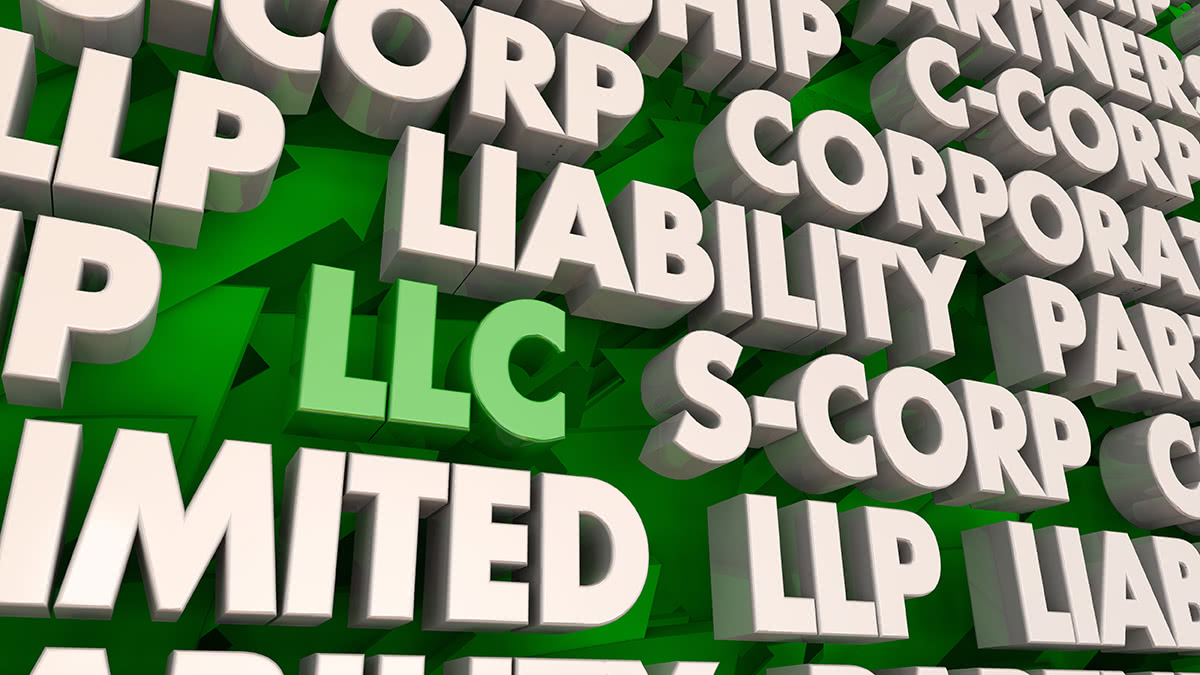How Will You Structure Your New Business?

DBA? LLC? Sole proprietorship? Knowing the basics of business structure keeps you from getting stuck in the weeds.
The concept of choosing a structure for your small business can be confusing. If you asked the business owners around you how they’ve done it, you’d likely get a mix of answers:
Mike the Lawn Wizard, your landscaper, says he’s set up as an S-corporation.
Your sister-in-law, a freelance business consultant, is a sole proprietor.
The owner behind the register at Organic Wonders, your health-food store, says her store is a sole proprietorship that also has a DBA.
Your physician’s practice is an LLC.
Trends are easy to find: The U.S. Chamber of Commerce reports that among America’s 33 million small businesses, 47 percent of firms with one hundred employees or less are S-corporations. The rest include limited liability companies (LLCs) and partnerships. Non-employee businesses are overwhelmingly sole proprietorships.
Still, there is no automatic “right” choice for your new venture. Rather, you’ll want to make these considerations:
Tax status: To what degree do you want or need to separate personal and business finances?
Legal liability: Do you need to protect your personal assets against possible lawsuits against your business?
Marketing: Can adding different company names help you win more business?
Resources: How much time and money are you willing to commit to managing your firm’s tax and legal requirements?
Knowing the answers to these questions informs your review of the most common business types.
Sole Proprietorship
This designation applies to more than eight out of ten of America’s one-person firms. Sole proprietors file a Schedule C with their Form 1040, paying all taxes — payroll, Social Security, state and local, etc., as personal income. It’s the easiest setup — you file a single return.
At the same time, being one in the same as your business lacks personal protections from financial loss or legal actions. A negligence lawsuit filed against your business is a lawsuit against you and your personal assets. Likewise, you will assume all debts if the business terminates.
Limited Liability Company (LLC)
This aptly named business structure, created at the state level, picks up where sole proprietorships leave off. An LLC provides legal and financial protections since it’s considered separate from your personal assets.
So, if a client sustains an injury or illness because of your product or service, your LLC can shield you from personal liability. An LLC also offers personal protection from business debits — unless you signed a personal guarantee backing the loan.
LLC can have as many owners (called members), as you like. But the more you have, the more complicated your management gets. Tax-wise, the LLC enjoys an interesting option: Its owner(s) can opt to file taxes as a corporation, a partnership, or as part of their personal tax return, depending on which offers greater advantages. In all cases, the LLC file to receive an employer tax number (EIN) from the IRS.
Keep in mind that you’ll need to file for your LLC in each state you plan to do business. Furthermore, the LLC’s financial and legal shields aren’t absolute. In several situations, including torts filed against your LLC, your personal assets can be jeopardized.
The DBA (Doing Business As)
Any type of business — sole proprietorship, LLC or corporation — can use this designation. Granted at the state or local level, the DBA grants a business the right to create an alternate name for use in all public communications:
One or multiple aliases offer these benefits:
Privacy Protection: If you’re a sole proprietor or a part of a partnership, a DBA can shield your name and other information.
Easy Branding: Create brand names for various target markets.
Many banks also require a DBA when a sole proprietor firm or a partnership applies for a business checking or savings account.
Consult the pros.
Armed with these basics, you’re ready to start the next step of forming your business — reaching out to your accounting and legal professionals for their advice and support. Knowing the details of your personal finances and your professional goals, they can guide you in deciding which business structure works best for you.
Since 2008, Fora Financial has distributed $4 billion to 55,000 businesses. Click here or call (877) 419-3568 for more information on how Fora Financial's working capital solutions can help your business thrive.
